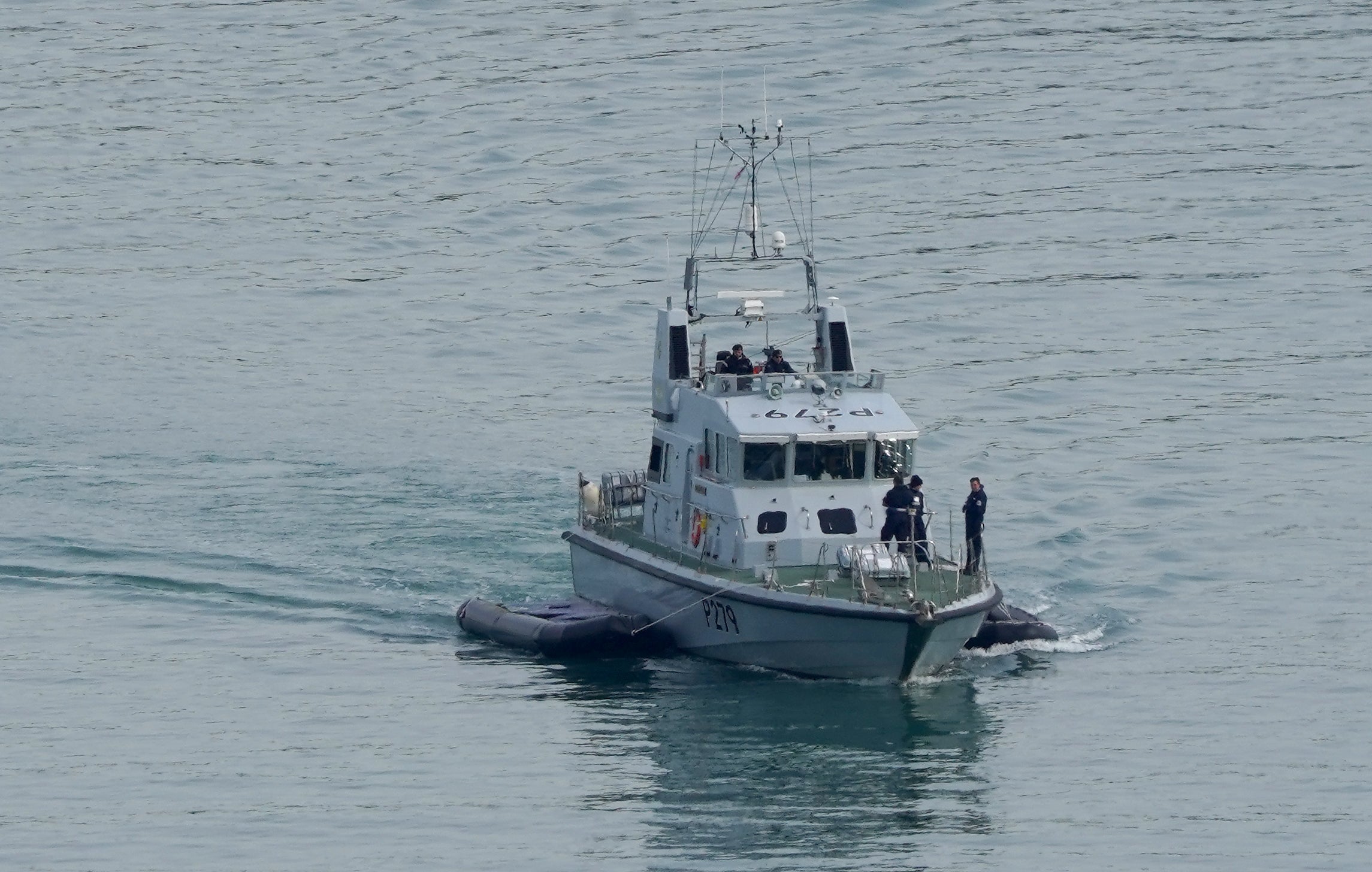Government abandoned migrant pushback tactic after trial, MPs hear
Armed Forces Minister James Heappey told the Defence Committee that the Ministry of Defence initially recommended against the tactic.

The Government abandoned its plan to use controversial pushback tactics to turn away migrants in the Channel after trials, MPs have heard.
Armed Forces Minister James Heappey told the Defence Committee on Tuesday that the Ministry of Defence (MoD) initially recommended against the tactic, which was dropped following the conclusions of Navy experts after trials by the Royal Marines.
The policy would have allowed border force patrols to intercept migrant vessels in the English Channel and take them back to France.
It was due to be challenged at the High Court earlier this year but was dropped just over a week before.
Mr Heappey told the committee the small, often overloaded, craft used by migrants are each treated as a “vessel in distress” and escorted back to the UK under mariners’ obligation to save life at sea.
He said: “We were asked to explore how those tactics could be used in the Dover straits, and our analysis after a series of trials in Weymouth with various techniques and an analysis of the water and the type of threat that was being faced was that it was inappropriate, and the argument was won.
“Government decided not to do that because the evidence provided by professional mariners within the Royal Navy was such to compellingly make the case for not doing it.”
He explained the Home Secretary and Prime Minister had seen pushback used internationally, but no examples involved a busy shipping lane like that in the Channel.
He said: “So our view, having been involved with the trials and having some expertise around those waters, was that it would be a breach of the saving life at sea convention to consciously seek to collide with another vessel in an international shipping lane.”
Dave Doogan, Scottish National Party (SNP) MP for Agnus asked: “So it was the moral component against pushback contingent on how busy that shipping lane is, or was it contingent on pushing back civilians and unseaworthy vessels with Royal Navy craft is unconscionable?”
Mr Heappey replied: “All of those things, all of those things.”
But the minister also came under fire about the way the Navy seemed to be “escorting” migrant boats across the Channel after being deployed to deal with crossings.
John Spellar, Labour MP for Warley, said it “was not the way in which this policy was sold”.
Military patrol vessels have been posted in the Channel to oversee operations since April, after being put in charge by Boris Johnson.
Mr Spellar made the remarks in response to Mr Heappey saying that “from the very outset” the Ministry of Defence was “clear” on the role it was going to play within the plan to deal with crossings.
Mr Spellar said: “Given now that the Navy’s role, and you might say you predicted that, although again, I would say that was not the way in which this policy was sold by the Home Office to the British public, or the public and the media’s interpretation of it all.
“But given that the Royal Navy’s role now seems to basically be escorting these vessels in, is the Navy happy with that work do you think?”
Mr Heappey said he had “heard no suggestion otherwise”.
Mr Spellar later asked: “Will it be fair to say basically the role of the Royal Navy now in this is to be a tour guide for illegal migrants to get them safely onto our shores?”
Mr Heappey responded that would be “an unfair reflection”.
He also told the Defence Committee the Navy had not been using “push back” tactics after they were ruled out following the trials.
Earlier this year the Prime Minister pledged £50 million in new funding for boats, aerial surveillance and military personnel to help ensure the measures are a “very considerable deterrent” to crossings.
The role of the military in the English Channel I think is quite tightly bound. It is there to gain control over the flow of migrants from France to Kent
The committee heard a total of 189 Royal Navy and British Army personnel had been deployed as part of “Operation Isotrope”.
Mr Heappey also told the committee that since the Royal Navy and British Army became involved in dealing with migrant crossings, all but one boat was brought to the UK in a “controlled” way.
The one that did get through landed at Dungeness Power Station and was intercepted by the Civil Nuclear Constabulary, he explained.
He said: “The role of the military in the English Channel I think is quite tightly bound. It is there to gain control over the flow of migrants from France to Kent.
“Within that is a greater assuredness over the capacity of UK-based maritime assets to save life at sea but also to ensure that as much as we’re able, and hitherto only one boat has landed in an uncontrolled way since we took primacy, that those arriving in the UK arrive under the control of Her Majesty’s government and enter into a process thereafter.”
He added that the armed forces had been “broadly successful” in fulfilling their role.
Bookmark popover
Removed from bookmarks